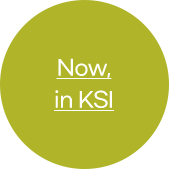
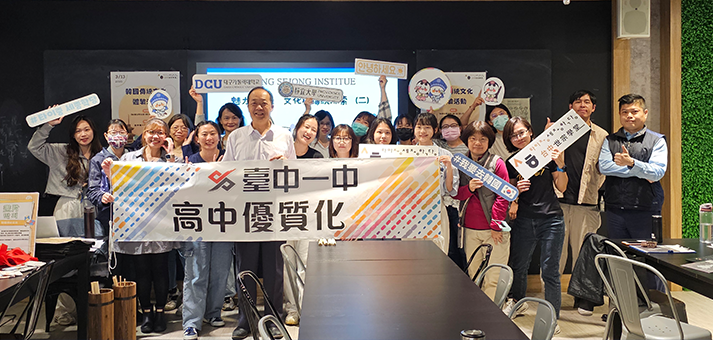
KSI Taichung, Introducing Korean Culture
at Taichung City High School Teachers’
Capacity-Building Seminar
>
On March 3 and March 13, two seminars were held under the theme “Exploring the Charm and
Traditions of Korean Culture 1 & 2”
>
A total of 39 teachers from four high schools in Taichung participated, experiencing a variety of
Korean cultural elements such as Korean cuisine and traditional games
For the past decade, the Ministry of Education in Taiwan has continued its support through various initiatives
to promote international exchanges with Korea. Taiwanese elementary, middle, and high schools actively maintain
exchanges with schools in Korea. In particular, institutions such as the Education Department of Penghu County,
elementary schools in Penghu County, and Taichung First Senior High School have requested professional
development programs for teachers in their respective districts or cities from KSI Taichung, which began
operating in 2024. These requests reflect the growing interest and enthusiasm for Korean culture not only in
mainland Taiwan but also in more remote regions such as Penghu Island.
In response, Nam Eun-jung, operation staff at KSI Taichung, has been organizing seminars featuring a rich
program that blends education and hands-on experience. Unlike the previous year, this year’s seminars were held
twice—on March 3 and March 13. The seminars, held under the theme “Exploring the Charm and Traditions of Korean
Culture 1 & 2,” were attended by a total of 39 teachers from four high schools in Taichung with high university
admission rates (Taichung Municipal Taichung First Senior High School, The Affiliated Senior High School of
National Chung Hsing University, Taichung Municipal Shi-Yuan Senior High School, Taichung Municipal Chang-Yi
High School). Of these, 21 teachers participated in both sessions.
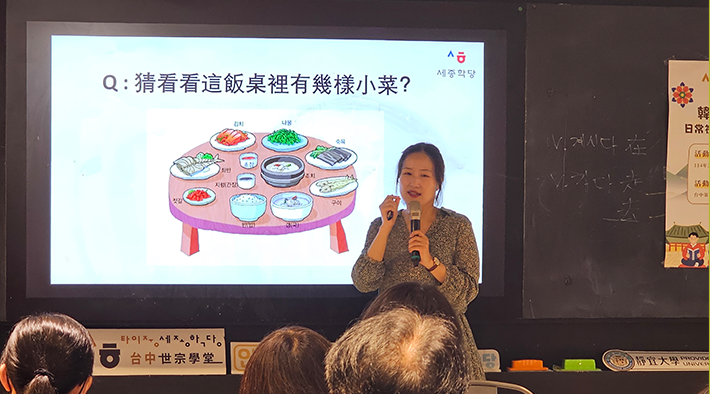 Nam Eun-jung, operation staff at KSI Taichung, explaining Korean food culture at the first seminar
on March 3
Nam Eun-jung, operation staff at KSI Taichung, explaining Korean food culture at the first seminar
on March 3
The first seminar on March 3 began with learning greetings, self-introductions (name, nationality, profession),
and basic conversational expressions in Korean. Following this, an introduction to the Korean education
system—an area of particular interest for the teachers—was provided. During the break, participants enjoyed
Korean snacks such as bugak and citron tea, accompanied by a brief explanation of Korean food culture. In the
next session, participants were introduced to hanji (traditional Korean paper) and cheongsachorong (traditional
Korean lanterns), followed by a hands-on activity making lanterns using hanji brought directly from Korea. In
the final session, each participant wore hanbok, held their handmade lanterns, and took commemorative photos.
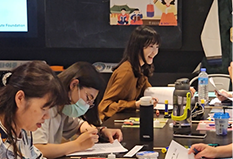 Participants practicing greetings in Korean with each other
Participants practicing greetings in Korean with each other
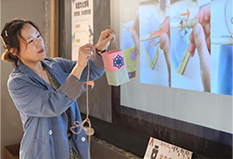 Nam Eun-jung, operation staff, guiding participants in making cheongsachorong
Nam Eun-jung, operation staff, guiding participants in making cheongsachorong
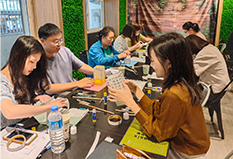 Participants focusing on crafting cheongsachorong using hanji
Participants focusing on crafting cheongsachorong using hanji
In the second seminar held on March 13, participants explored the atmosphere of Korean New Year (Seollal) and
the custom of hanging bokjori (fortune bamboo strainers), as well as the traditions and cuisine of Chuseok,
Korea’s harvest festival. The session also introduced practical Korean expressions useful for travel, travel
tips and etiquette, and an overview of Korea’s floor-seating culture and ondol (traditional underfloor heating
system). During the break, participants enjoyed hangwa (traditional Korean confections) and plum tea, continuing
their learning about Korean tea-time customs. Participants had fun playing traditional Korean games typically
enjoyed during holidays, including tuho (arrow-throwing game), ttakji-chigi (slap-match), jegichagi (hacky
sack), gonggi (jacks), and yutnori (traditional board game). Following this, they learned about some of
Gyeongju’s representative cultural heritage sites—Cheomseongdae Observatory, the Seokgatap and Dabotap pagodas
of Bulguksa Temple, and the Silla golden crown. Each participant then selected their favorite cultural heritage
item to assemble using a wooden craft kit.
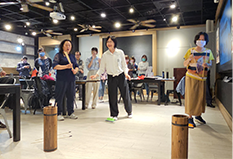 Participants experiencing traditional Korean games
Participants experiencing traditional Korean games
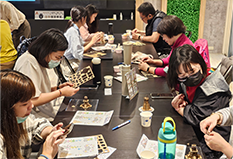 Participants assembling wooden craft kits of Silla cultural heritage
Participants assembling wooden craft kits of Silla cultural heritage
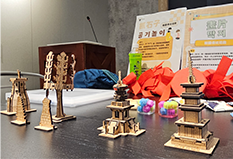 Silla heritage wooden craft kits completed by the participants
Silla heritage wooden craft kits completed by the participants
Huang Li-Huei, one of the participants, shared, “I traveled to Gyeongju with my family last year, but I only
learned today what the Seokgatap and Dabotap pagodas at Bulguksa Temple represent. I also felt the strength of
Korean science through Cheomseongdae, which contains astronomical principles and ancient calendrical knowledge.”
Another participant, Liao Shao-Jun, remarked, “I learned that holding your bowl while eating is considered
impolite in Korea, which is quite different from Taiwanese table manners. I really appreciated how this seminar
helped me naturally understand Korean culture.” Hsu Hsin-Jou added, “Receiving a note with my name written in
Korean and learning how to introduce myself in Korean was a great experience. I also enjoyed discovering the
unique charm of Korea through its traditional games. The plum tea and confections were truly delicious.” She
expressed her gratitude for the thoughtful preparation and the instructor’s passionate teaching.
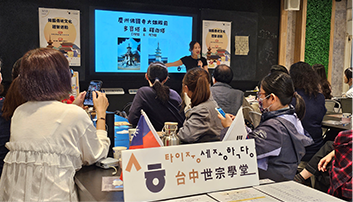 Participants listening to an explanation of Dabotap and Seokgatap at Bulguksa Temple
Participants listening to an explanation of Dabotap and Seokgatap at Bulguksa Temple
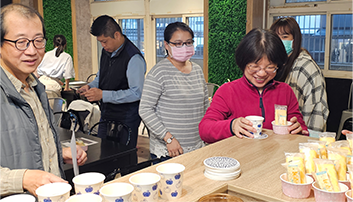 Participants enjoying hangwa and plum tea during the break
Participants enjoying hangwa and plum tea during the break
This seminar, which introduced Korean culture and provided opportunities for cultural exchange between Taiwan
and Korea, was organized to support Taiwanese teachers in guiding high school students as they enter a
globalized society. The program aimed to help students grow into individuals who can live harmoniously with
people of diverse identities, embracing diversity with openness and inclusivity.
Nam Eun-jung, operation staff at KSI Taichung, shared her thoughts on organizing the event, “I felt proud to
have been invited to take charge of planning and conducting such a meaningful seminar. I was deeply moved by the
Taiwanese teachers’ enthusiastic questions and genuine curiosity about Korea, as well as their warm-hearted
appreciation for other cultures.”
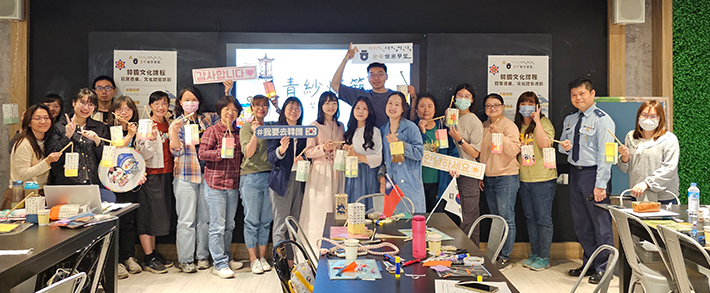 Group photo of the participants from the first seminar
Group photo of the participants from the first seminar
Lyu Pei-ying, who joined KSI Taichung as a new operation staff this March, also shared her impressions, “I’m
very pleased to have had the opportunity to introduce Korean history and culture to high school teachers in
Taichung. This seminar not only conveyed the unique charm of Korean culture to the participants, but also
clearly demonstrated the importance of cultural exchange. I hope that more people will come to understand Korea
more deeply and empathize across cultures.”
Article by Nam Eun-jung, Correspondent at KSI Taichung
